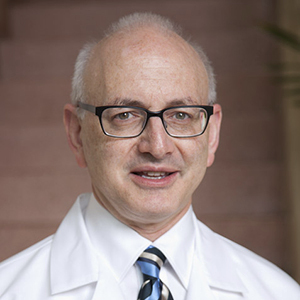Research We Fund
With hundreds of projects currently underway, we fund scientists through our academic grant programs and biotech partners through our strategic venture philanthropy initiative. Use the filters below to find an LLS-funded project.
For a better viewing experience, please use a larger device.
Translating molecular profiles into treatment approaches to target disparities in lymphoma
Although many patients with diffuse large B-cell lymphoma (DLBCL) are cured with standard therapy, others will die from their disease. Survival is significantly worse for African American (AA) patients and those with Epstein- Barr virus (EBV), which is common in patients from Latin America. The reasons behind these poor outcomes are not well understood, in part because most studies of molecular features in lymphomas have not included enough patients from these racial and ethnic groups.
Lymphoma tumors include not just the cancer cells themselves, but also surrounding cells and proteins that help the cancer cells survive. To understand why AA DLBCL patients and those with EBV have worse outcomes, we will look at differences in genes and tumor make-up in a large collection of DLBCL samples with good representation of these patient groups. Our goal is to find the factors most important to target with new treatments to improve survival for AA and EBV+ patients. We will also build innovative models of DLBCL in the lab to (1) discover how tumor make-up and gene changes affect tumors’ response to treatment, and (2) test new therapies designed to benefit AA DLBCL patients and patients with EBV-associated DLBCL.
Overall, our LLS SCOR Program seeks to bridge the knowledge gap in molecular features of DLBCL in underrepresented populations, and fast-track development of novel targeted therapies that can improve outcomes for these vulnerable patients.
Program: Specialized Center of Research ProgramProject Term: Start Date: October 1, 2024 End Date: September 30, 2029
Understanding Leukemia in Children with Down Syndrome to Develop Better Therapies
This Specialized Center of Research is focused on identifying the contributions of chromosome 21, which is present in three copies in individuals with Down syndrome (DS), to acute leukemia. Children with DS are at a 20-fold increased risk of leukemia compared to the overall pediatric population and frequently have other health issues that complicate leukemia treatment. Although acute myeloid leukemia in children with DS (ML-DS), which frequently evolves from transient abnormal myelopoiesis (TAM), has a better outcome than acute myeloid leukemia (AML) in children without DS, those who relapse following treatment face an extremely poor prognosis. Similarly, children with DS who develop B-ALL have a worse prognosis than those without DS due to excessive treatment-related mortality and increased risk of relapse. Our overarching, united goal is to develop novel therapies to cure DSassociated leukemias and to reduce the side effects of treatment in this vulnerable population. In addition to children with DS, our study has major implications in other cases of pediatric and adult leukemias. For example, chromosome 21 amplification is one of the most significant gains in several classes of malignancies, including certain subtypes of AML, hyperdiploid ALL, and iAMP21. Amplification of chromosome 21 is also a feature of the acute leukemia phase of a disease named myelofibrosis. Therefore, insights we gain from this research will impact a large group of patients with acute leukemia.
Program: Specialized Center of Research ProgramProject Term: Start Date: October 1, 2024 End Date: September 30, 2029
Epigenetic Mechanisms and Targeting in Hematological Malignancy
Blood cancers can be caused by aberrant regulation of genes that control cell growth and development. The root cause of this problem may be the presence of mutant regulator proteins in the cell and abnormal switching on or off of target genes. Our SCOR studies the molecular basis of this gene deregulation using cell cultured in the laboratory, in human specimen and animal models.
Melnick will study the complex of proteins evolve in looping DNA segments to put gene regulatory sequences in proximity of genes critical for the development of antibody producing B cells. Abnormalities of this apparatus lead to lymphoma. Roeder will study multi-protein complexes involved in “bookmarking” chromatin (the complex of DNA and histones found in the cell nucleus) by chemical modification. He studies the proteins that initiate transcription of DNA into RNA and that assure the passage of the polymerase that creates messenger RNA across genes. Soto-Feliciano studies TRIM28, a protein essential for growth of acute leukemia will identify its mechanisms and target genes. Licht will study the role of chromatin regulators in the response of the immune system to multiple myeloma and how inhibitors of chromatin regulator inhibitors affect the tumor immune response. Patel will study in explore the three-dimensional structures of these protein complexes critical for gene regulation in blood malignancies to understand their mechanisms and develop new small molecules to modulate their action.
Program: Specialized Center of Research ProgramProject Term: Start Date: October 1, 2024 End Date: September 30, 2029
Development of a clinical program for myeloid cancer prevention
The majority of myeloid cancers remain incurable. We previously showed that individuals at risk can be identified years in advance, indicating that prevention may be a viable alternative to treatment. Here, we propose a program of work to establish a clinical platform for myeloid cancer prevention. This includes development of a screening strategy, improved understanding of myeloid cancer evolution, identification of treatment targets and establishment of a specialized clinic to deliver therapy.
Program: Specialized Center of Research ProgramProject Term: Start Date: February 1, 2024 End Date: January 31, 2029
Developing Novel Immunotherapies for Challenging Lymphomas
This team science program from Washington University will develop new immunotherapy treatments for patients with hard to treat or incurable lymphomas. The team includes physicians and scientists who have developed new ideas in the laboratory for immune-based treatment, and will translate these to clinical trial testing. These include engineered natural kill cells, healthy donors T cell engineered to attack a T cell lymphoma, and lymphoma-patient specific mutations as vaccine targets.
Program: Specialized Center of Research ProgramProject Term: Start Date: October 1, 2023 End Date: September 30, 2028

Craig Jordan, PhD
University of Colorado Denver, Anschutz Medical Campus
Aurora, ColoradoTherapeutic targeting of AML stem cells 2023
The goal of this SCOR project is to identify and eradicate the root cause of acute myeloid leukemia, the so-called leukemia stem cell (LSC). In the previous cycle of this SCOR grant, we developed two unique strategies, each of which efficiently eradicates LSCs in the laboratory. Going forward, we will expand our scientific efforts to further improve these approaches and also conduct clinical trials to determine whether our approaches to killing LSCs will benefit AML patients.
Program: Specialized Center of Research ProgramProject Term: Start Date: October 1, 2023 End Date: September 30, 2028
The Immune Niche in the Development of Hematological Malignancies and Implications for Novel Therapy
Our SCOR Program, composed of four complementary Projects supported by three shared Cores, is designed to determine how the immune niche and factors in its composition and regulation affect the initiation and progression of hematopoietic malignancies. Using genetically engineered mouse models, cell cultures and patient samples, the power of multi-omics analyses will be brought to bear to identify common drivers and expose underlying mechanisms. Findings from this work should reveal multiple candidate therapeutic targets whose exploitation may lead to the development of broadly applicable therapeutics for leukemias/lymphomas. Partnerships with pre-clinical and clinical trials experts at our home institutions and beyond will facilitate the translation of our findings to the bedside and potentially provide new hope to patients suffering from these devastating cancers.
Program: Specialized Center of Research ProgramProject Term: Start Date: October 1, 2022 End Date: September 30, 2027
Understanding and Overcoming Mechanisms of Immune Evasion after Allogeneic Transplant
Outcomes for patients with acute myelogenous leukemia who relapse after transplantation are dismal. This SCOR brings together an international group of collaborators with deep expertise in genomics, epigenetics, antigen presentation, and immune-regulation. They will focus on mechanisms of immune evasion by leukemia cells, identifying effective T cell responses to those evasive processes, and providing critical insights into the optimal approaches to model new and promising targets for immunotherapy with a goal of eliminating leukemia recurrence.
Program: Specialized Center of Research Program
Project Term: Start Date: October 1, 2022 End Date: September 30, 2027
Exploiting Vulnerabilities in RNA Splicing to Treat Hematologic Malignancies
RNA splicing is a central metabolic pathway that is frequently perturbed in hematopoietic malignancies (HMs) that harbor mutations in spliceosome components (most commonly affecting SRSF2, SF3B1, U2AF1, or ZRSR2). These mutations are particularly prevalent in myeloid malignancies (e.g., MDS, MDS/MPN, sAML), but recent pan-cancer studies have implicated aberrant splicing in >30 tumor types. The Project Leaders have probed the molecular consequences of aberrant splicing and identified critical pathways that are amenable to targeted inhibition, including the DNA damage response (Graubert/Walter), the nonsense-mediated RNA decay (NMD) pathway (You/Walter), the spliceosome itself (Abdel-Wahab/Walter/Graubert), and others. To date, effective therapies for HMs have not capitalized on these unique vulnerabilities. The goal of this SCOR is to generate testable clinical hypotheses based on careful mechanistic studies in pre-clinical models and to rapidly move these ideas into the clinic in the near term.
Program: Specialized Center of Research ProgramProject Term: Start Date: October 1, 2021 End Date: September 30, 2026
Translational Discovery in Peripheral T-Cell Lymphomas
Peripheral T-cell lymphomas (PTCLs) are poorly understood and patients with PTCL are underserved by current therapies. The most common subtypes (among >20) are PTCL-not otherwise specific (NOS), angioimmunoblastic T-cell lymphoma (AITL), and anaplastic large cell lymphoma (ALK- ALCL). Rational treatment strategies for these lymphomas are lacking, largely due to the insufficient characterization of PTCL pathobiology and historic paucity of faithful models. Over the past 4 years, our groups and others have identified recurrent alterations in PTCL subsets, developed targeted agents against PTCL and established an unprecedented repository of PTCL models for in vitro and in vivo interrogation. A clinical trial led by director Dr. Horwitz established a new standard-of-care for upfront treatment of CD30+ PTCLs. Additional trials developed through this SCOR have advanced therapeutics targeting PI3 kinase (duvelisib), JAK1/2 (ruxolitinib) and IDH2 (enasidenib) for relapsed/refractory PTCL. The central goal for the next 5 years of support is to establish informed combination strategies that eradicate resistant populations and thereby extend the duration of meaningful responses.
Program: Specialized Center of Research ProgramProject Term: Start Date: October 1, 2021 End Date: September 30, 2026
Multi-modal Immunotherapeutic Targeting of AML-restricted Targets in Infants and Children
Advances in understanding and management of AML in children has been stagnant for decades. Observed improvements in survival are more directly linked to improvements in supportive care or risk identification rather than advances in therapeutics. Excitement around FDA approval of two new IDH1/2 inhibitors did not reach the pediatric oncology community given paucity or absence of such mutations in children. This also highlights the stark differences between AML in older adults and that in younger patients. Thus, “trickle down therapeutics” where therapies that are developed in older adults are used effectively in children is a flawed concept. Discoveries and therapeutic development in younger patients must be prioritized if meaningful advances are to be made in curing AML in younger patients. Given that AML in children is not a priority for the pharmaceutical companies, alternate mechanisms for advancing therapeutics in children and young adults should be implemented.
Program: Specialized Center of Research ProgramProject Term: Start Date: October 1, 2021 End Date: September 30, 2026
Targeting Epigenetics in Myeloid Malignancies
We have a highly collaborative team of investigators, whose goal is to develop novel therapeutic approaches to MDS and AML as well as to improve current therapies for these diseases based on a detailed understanding of how epigenetic dysregulation contributes to myeloid neoplasia. We are focusing on the clonal MDS or AML cell and on the bone marrow microenvironment (BMME), including immune cells that could contribute to or limit the progression of these disorders. Our Center brings together chemists, biochemists, cellular biologists and molecular biologists, who are supported by three core facilities, including an Administrative core, an Epigenomics core and a Bioinformatics and Big data sharing core. To advance our Center’s ability to implement personalized therapies for patients with myeloid malignancies, we have generated and will generate novel reagents, and utilize state-of-the-art in vitro and in vivo assays to identify key modulators of drug sensitivity or resistance. We will focus on so-called “epigenetic-focused” therapy, realizing that many of the enzymes that regulate epigenetic control of cell fate, influence signal transduction pathways, RNA splicing events, and the activity of key cellular proteins, such as BCL2 family members and p53.The genetic mutations that underlie myeloid malignancies have been identified, and we and others have generated mouse models that have pinpointed the role that these genes and their mutations play in normal and malignant hematopoiesis. Our institutions have biospecimen banks with large numbers of MDS and AML samples, and active clinical trial portfolios, that have led to FDA approval of a variety of novel agents, including IDH1/2 inhibitors. The next step in delineating the pathogenesis and Achilles’ heel of these disorders is to better define the role of epigenetic abnormalities play in disease initiation and progression, and to define how targeting LSD1, the CoREST complex, PRMT5 and inflammation signals may advance current treatment strategies (e.g. VEN/AZA), and to enhance the activity of promising agents currently under investigation (menin inhibitors, etc.). Identifying the dependencies and vulnerabilities created by genetic or epigenetic abnormalities will allow us to more rationally advance the treatment of myeloid malignancies, a disease focus where headway is beginning to be made.
Defining the crosstalk between different epigenetic regulators, and how they affect cellular and extracellular processes other than histone proteins, may identify unique sensitivities that can increase the therapeutic index for novel, epigenetic-focused treatments, and identify potentially synthetic-lethal combination therapies. The individual projects in our Center, cover three key aspects of gene regulation and chromatin structure. Project 1 is focused on the LSD1 demethylase, which plays a role in myeloid differentiation, Project 2 is focused on the role of PRMT5 in regulating LSC self-renewal, proliferation and survival, and the expression of potential immunogens, and Project 3 is focused on the interaction between the BMME and the epigenome in mediating sensitivity to epigenetic agents in CMML and MDS. Thus, our center will span the continuum from basic mechanisms of disease initiation and progression, to clinical issues related to therapeutic sensitivity vs. resistance.
Ramin Shiekhattar first discovered that MAO inhibitor antidepressants such as tranylcypromine (TCP), can inhibit the LSD1 demethylase. This finding led to a recently published clinical trial of AZA + TCP in MDS and AML patients led by Justin Watts, and to a new clinical program, that will be continued at Sylvester and MSKCC. They will work with Phil Cole, who founded a biotech company in 2011 that is synthesizing novel epigenetic-focused therapies, to examine how targeting the CoREST complex can synergize with clinically available MDS/ AML cells differentiation- or apoptosis-inducing agents. Several lead compounds are now being tested in the Shiekhattar and Nimer labs.
Omar Abdel-Wahab and Stephen Nimer have discovered several oncogenic functions of PRMT5, an arginine methyltransferase targeted by several small molecule inhibitors that are now in clinical trials for MDS or AML patients at Sylvester and MSKCC. They will work with Luisa Cimmino to exploit their work implicating PRMT5 in regulating homologous recombination, RNA splicing and p53 function. Maria Figueroa has extensively studied predictors of the clinical response to DNA hypomethylating agents (HMA) and has identified critical mediators of HMA resistance originating in the BMME. She will work with Ross Levine, a leader in delineating the molecular pathogenesis of hematologic malignancies, to evaluate how signals from the BMME impact the responsiveness of MDS and CMML cells to HMA combinations as well as how to overcome primary resistance to HMA by targeting key signals in the niche.
Three Cores will enable the efficient completion of our collaborative studies. Core A, the Administrative Core, will be housed at UM; it will provide infrastructure support, to optimize interactions between the various labs represented here, handle all financial and reporting aspects of the grant, assist with the SCOR site visit and the annual meeting of the Center, and maintain regulatory compliance for the Center (e.g. assuring access to bio-specimens, handling IRB and IACUC approvals, etc.). Both UM and MSKCC continue to collect MDS/AML/MPN bio-specimens. Core B, the Epigenomics Core, led by Sion Williams and Lluis Morey, will perform various NGS-based assays to assess genome-wide changes in gene expression, DNA methylation, and histone post-translational modifications. Core C, the Bioinformatics and Big Data Core, led by Stephan Schürer, will provide bioinformatics support and ensure complete and efficient sharing of data for all three projects in the SCOR.
Program: Specialized Center of Research ProgramProject Term: Start Date: October 1, 2022 End Date: September 30, 2027

Robert Orlowski, PhD, MD
The University of Texas MD Anderson Cancer Center
Houston, TexasSCOR in High Risk Plasma Cell Dyscrasias
Dr. Orlowski assembled an experienced, collaborative group of researchers who work in a multidisciplinary manner on projects focusing on basic, translational, and clinical aspects of smoldering multiple myeloma (SMM) and multiple myeloma (MM). Both high risk SMM and MM represent important and urgent unmet medical needs for the development of novel, more effective therapies.
Program: Specialized Center of Research ProgramProject Term: Start Date: October 1, 2017 End Date: September 30, 2023

Carl June, MD
The Trustees of the University of Pennsylvania, Medical Center
Philadelphia, PennsylvaniaPan-heme CAR: Anti-CD38 CAR T cells for myeloid, lymphoid and plasma cell malignancies
Our SCOR team has a razor-sharp focus on an exciting new treatment modality for blood cancers: chimeric antigen receptor (CAR) T cells. T cells can be trained to target cancer cells by genetic modification. In fact, previous support from the Leukemia & Lymphoma Society allowed us to successfully develop CAR T cells targeted to CD19, a pan-B cell marker. This treatment, generically called CART-19, was approved by the FDA in 2017 for the treatment of B-cell acute lymphoid leukemia (B-ALL) and in 2018 for some non-Hodgkin lymphoma (NHL), with promising results in other B cell malignancies such as chronic lymphocytic leukemia (CLL). Thus, the development of a single therapy for a single disease (initially, CLL) paid handsome dividends when translated to a broader range of CD19-expressing malignancies (ALL, NHL).
Program: Specialized Center of Research ProgramProject Term: Start Date: October 1, 2019 End Date: May 31, 2025

Craig Jordan, PhD
University of Colorado Denver, Anschutz Medical Campus
Aurora, ColoradoTherapeutic targeting of AML stem cells 2018
Our SCOR team seeks to fundamentally reinvent the ways in which physicians diagnose and treat acute myeloid leukemia (AML). For over 40 years, AML has been treated with a combination of chemotherapy drugs that have major side effects and usually only provide short-term benefit to patients. Indeed, survival rates for most AML patients are dismal, and quality of life for these patients is poor. Consequently, improved strategies for AML are a huge priority for the field. We believe that the lack of progress against AML is due to a single, fundamental failure of existing therapies: While current therapies attack leukemia cells, they fail to act against the real root of the problem, namely leukemia stem cells. It’s like mowing over weeds in a lawn. If the roots are not removed, the weed (disease) will grow back. And like eradicating the roots of weeds, AML stem cells have proved difficult to treat. This is primarily due to the fact that AML stem cells within a given patient can exist in multiple forms, each of which has a differing response to therapy. In other words, while various drugs can often kill some AML stem cells in a patient, completely eradicating all the AML stem cells can be very difficult.
Program: Specialized Center of Research ProgramProject Term: Start Date: October 1, 2018 End Date: September 30, 2024
Targeting Enhancer Dysfunction in Hematological Malignancy
Blood cancers such as leukemia, lymphoma and myeloma may be caused by abnormal regulation of genes that control normal cell growth and development. Genes that are normally active can be silenced and/or genes normally not present in a blood cell are abnormally activated. The result can be an uncontrolled signal for continued cell growth or survival. Our group studies the molecular basis of this gene deregulation using cells cultured in the laboratory, human specimens, and animal models.
Program: Specialized Center of Research ProgramProject Term: Start Date: January 1, 2019 End Date: September 30, 2024
Improving targeted adoptive cell therapy of myeloma
Dr. Madhav Dhodapkar, M.D., of Winship Cancer Institute of Emory University, Atlanta, leads a multi-institutional, multi-disciplinary LLS Specialized Center of Research team focused on advancing new immunotherapies for patients with multiple myeloma. Their goal is to improve the effectiveness of CAR T-cell immunotherapy, which engineers the patient’s T cells to find and kill cancer cells. The CAR-T they are studying targets a protein called BCMA found on the surface of all myeloma cells. BCMA-targeting therapies are showing tremendous promise for treating myeloma patients in clinical trials, but many patients eventually relapse. Dr. Dhodapkar’s group is working to understand the mechanisms that cause some patients to be resistant to the treatment. They are also investigating another type of immunotherapy that relies on natural killer T cells. His team includes researchers at Emory as well as Fred Hutchinson Cancer Center in Seattle.
Program: Specialized Center of Research ProgramProject Term: Start Date: January 1, 2020 End Date: December 31, 2024











